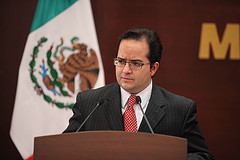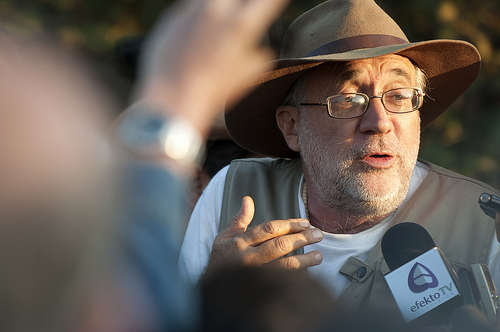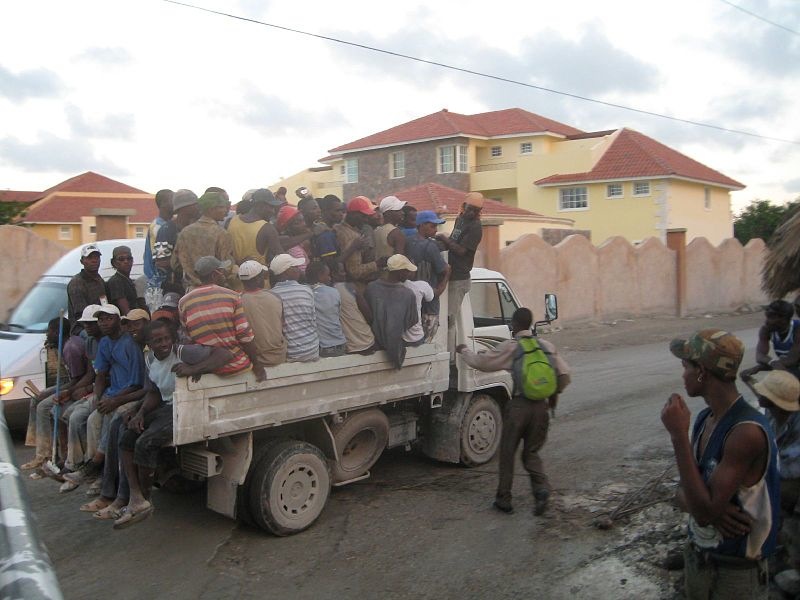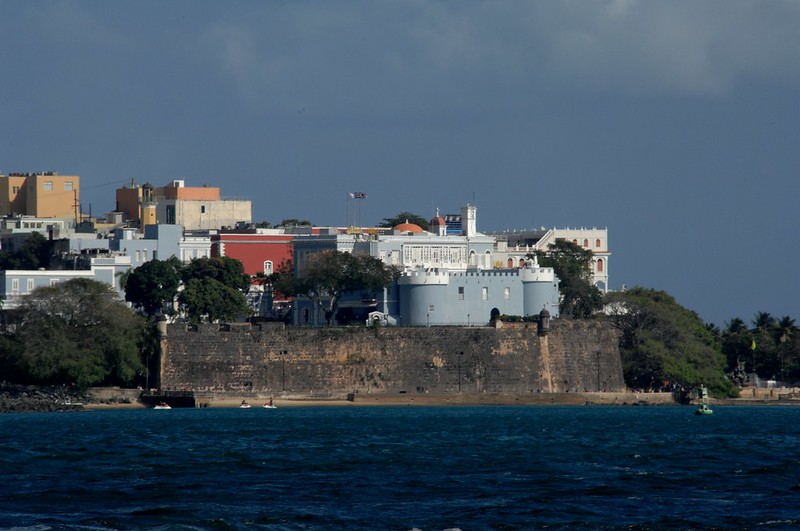
Latin America: Week in Review, Mexico
Calderón’s Proposal To Try Mexican Soldiers In Civilian Courts Doesn’t Go Far Enough, Human Rights Groups Say
October 20, 2010 By Staff

Mexican drug war spokesman Alejandro Poiré.
Today in Latin America
Top Story — Human rights groups criticized a proposal by Mexican President Felipe Calderón to try soldiers in civilian courts, saying the law would not go far enough, The Los Angeles Times reported on Tuesday.
The proposal, which has been submitted to Mexico’s Congress, would require civilian trials for soldiers charged with rape, torture and forced disappearances. Mexican soldiers accused of such crimes currently stand trial in military courts.
But the law would exclude other serious crimes that have tainted the Mexican military’s reputation in recent years, including unlawful detention and extrajudicial killings, The L.A. Times reports.
“Any reform of the military code should include civilian jurisdiction for all human rights abuses, not just a selection of certain abuses,” said Maureen Meyer, of the Washington Office on Latin America.
Mexico’s drug war spokesman Alejandro Poiré defended the measure, saying “This proposed reform doesn’t eliminate military jurisdiction — it modernizes it.”
Other human rights groups, including Amnesty International, Human Rights Watch, and the U.N. high commissioner for human rights, issued statements urging the Mexican congressmen to expand the scope of the law.
The decision to alter military jurisdiction over violent crimes committed by soldiers against civilians was prompted by a November ruling by the Inter-American Court of Human Rights that condemned the Mexican government for failing to adequately investigate the 1974 disappearance of a guerrilla sympathizer, The Associated Press reports.
Just Published at the Latin America News Dispatch
- With it the nation’s toughest state immigration law, Arizona has taken center stage in the national debate about immigration as the midterm elections approach. Molly O’Toole reports from Arizona in a three-part series.
- The threat to freedom of the press posed by Mexico’s drug cartels begs a bilateral response, a panel of journalists and press freedom groups said in New York Tuesday. Andrew O’Reilly has more.
- Hispanic groups are attempting to mobilize voters amid concerns that voter turnout will be low for midterm elections.
Headlines from the Western Hemisphere
North America
- Twenty-six undocumented immigrants were apprehended over the weekend trying to reach the U.S. coast on water skis, a luxury sailboat and a small fishing vessel, only to be intercepted by federal agents, U.S. Customs and Border Protection said Monday.
- A California native who went missing in Mexico nearly two months ago was found dead over the weekend, the victim of an apparent homicide, a Mexican state official said Tuesday.
- A suspect wanted in the 2001 shooting death of an Arizona teenager has been arrested in Mexico.
Caribbean
- The opposition party in Barbados has elected a former prime minister as its new leader.
- Miami-based Adonel Concrete said Tuesday it has acquired a 50 percent interest in Betonex, a Port-au-Prince concrete company.
- Opponents of a big mining project in the Dominican Republic asked a judge Tuesday to halt the Canadian company’s operation until it addresses their concerns over the environmental impact.
- President Barack Obama indicated Tuesday he was still in a wait-and-see mode in terms of U.S. policy toward communist Cuba, saying Havana’s pledges on economic change, so far, remained just that.
Central America
- In meetings with the new ambassadors to the Vatican from Colombia and El Salvador, Pope Benedict XVI urged their governments to work for full human development and an end to violence.
- The dredging of the Río San Juan, the river that serves as the eastern part of the northern border between Costa Rica and Nicaragua, began Monday amid heightened concern by Costa Rican officials about the potential environmental and economic impacts of the operation.
Andes
- Claudia Julieta Duque, an investigative radio reporter in Colombia who was abducted twice and repeatedly threatened is among four international newswomen who are being honored for their courage in standing up to intimidation, threats and violence.
- President Barack Obama has said Venezuela has the right to develop a peaceful nuclear energy programme, but must “act responsibly”.
- Police in Ecuador say the bodies of four Cameroon citizens have been found in a house in the capital in a suspected drug-related slaying.
- Land-locked Bolivia is getting a tiny sliver of the Pacific — a dock, a free-trade zone and the right to run some naval vessels, although the agreement signed Tuesday with Peru falls far short of what Bolivians have dreamed of for 126 years — a coastline of their own.
Southern Cone
- In a controversial agreement, Mercosur parliament will enact proportional representation for member nations (currently, all Mercosur countries have an equal number of representatives) and allow the public to elect parliament members directly.
- Brazilian oil company Petrobras announced that it will begin drilling in the Tupi offshore reserve in ten days.
- A Chilean legislative commission will investigate the collapse of the San José mine and allegations that mine operators were warned of an impending disaster by one of the 33 men who was eventually trapped inside.
- A dating web site for people seeking extramarital affairs offered Chilean miner Yonni Barrios $100,000 to be its poster boy after Barrios’s wife and mistress infamously met at a vigil outside the mine.
Image:
Subscribe to Today in Latin America by Email






1 Comment
[…] new Mexican law proposed by President Calderon to require soldiers to be tried in civilian courts for rape, […]
Comments are closed.